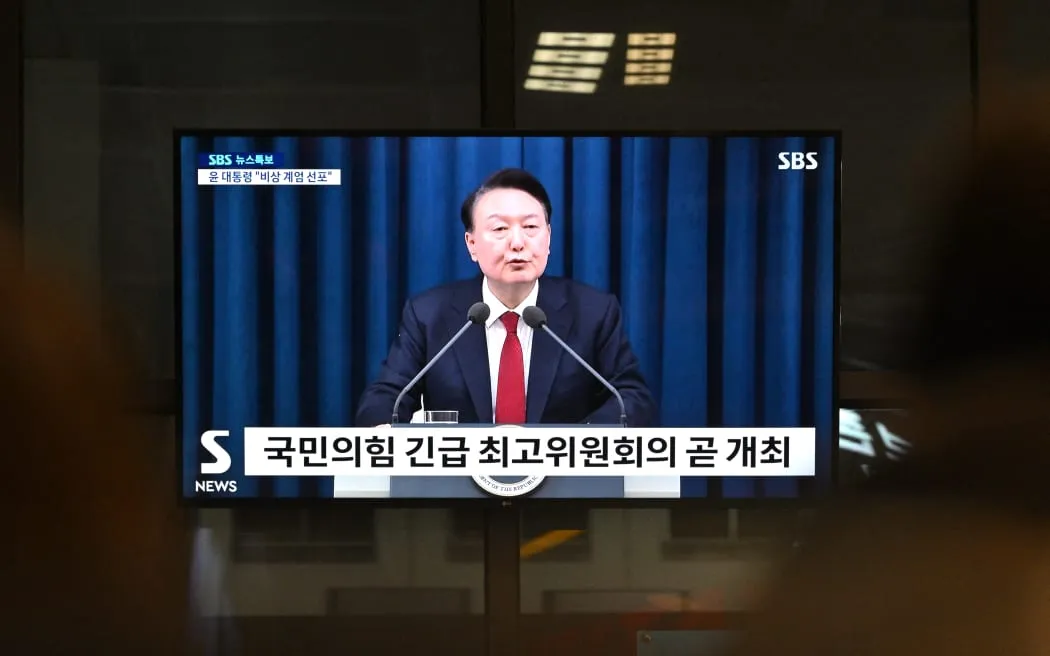South Korea’s President Faces Impeachment Over Martial Law Attempt
South Korean President Yoon Suk Yeol is facing impeachment after declaring emergency martial law, a move that has sparked widespread concern and opposition from lawmakers. The declaration of martial law was made in an attempt to address parliamentary wrangling over a budget bill, but it has instead plunged the country into chaos.
The Motion to Impeach
Lawmakers have formally introduced a motion to impeach President Yoon Suk Yeol over his botched attempt to impose martial law. The Democratic Party, which has a majority in parliament, is seeking to pass the bill, but Yoon’s ruling People Power Party has vowed to oppose it, throwing the process into doubt.
“A great deal of confusion and fear has been caused among our people by President Yoon Suk Yeol’s declaration of emergency martial law,” said Democratic Party lawmaker Kim Seung-won during a late-night session of South Korea’s National Assembly. “We need to immediately suspend the authority of President Yoon. He has committed an indelible, historic crime against the people.”
The Backstory: A Martial Law Declaration
President Yoon Suk Yeol declared emergency martial law on Wednesday in an attempt to address parliamentary wrangling over a budget bill. The move was met with shock and division within Yoon’s own party, as well as among his ministers.
The declaration attempted to ban political activity and censor the media, which has Asia’s fourth-largest economy and is a key US ally. Armed troops were deployed to the National Assembly building in Seoul, but they stood back when parliamentary aides sprayed them with fire extinguishers. Lawmakers rejected the martial law decision while protesters scuffled with police outside.
The Implications
If the impeachment motion is passed and upheld by the constitutional court, Yoon would be the second South Korean president to have been impeached since massive candlelit protests against an influence-peddling scandal led to the removal of former president Park Geun-hye in 2017.
Opposition parties need a two-thirds majority to pass the bill, and support from about eight members from Yoon’s own party to secure the necessary 200 votes to impeach him. If the bill passes, South Korea’s Constitutional Court will then decide whether to uphold the motion, a process that could take up to 180 days.
Conclusion
The impeachment of President Yoon Suk Yeol marks a significant turning point in South Korean politics. The declaration of martial law has sparked widespread concern and opposition from lawmakers, and it remains to be seen how the constitutional court will respond to the impeachment motion. One thing is certain, however: the future of South Korea’s democracy hangs in the balance.
– Reuters

0 Comments